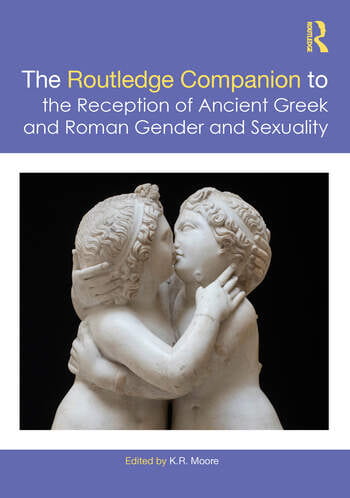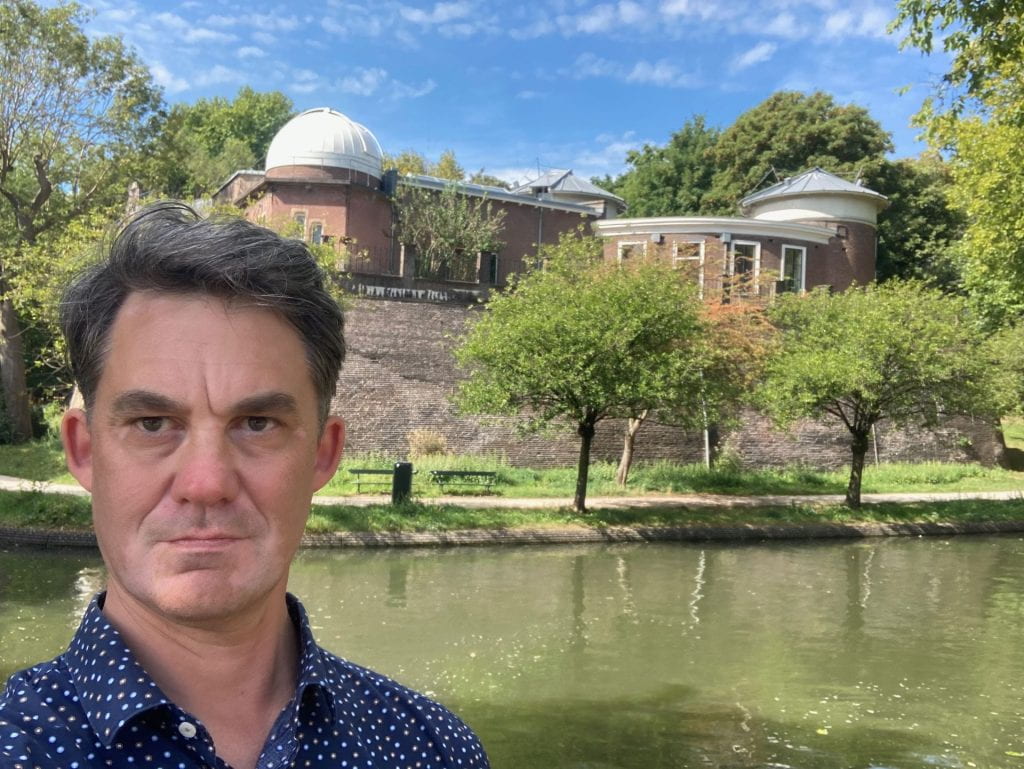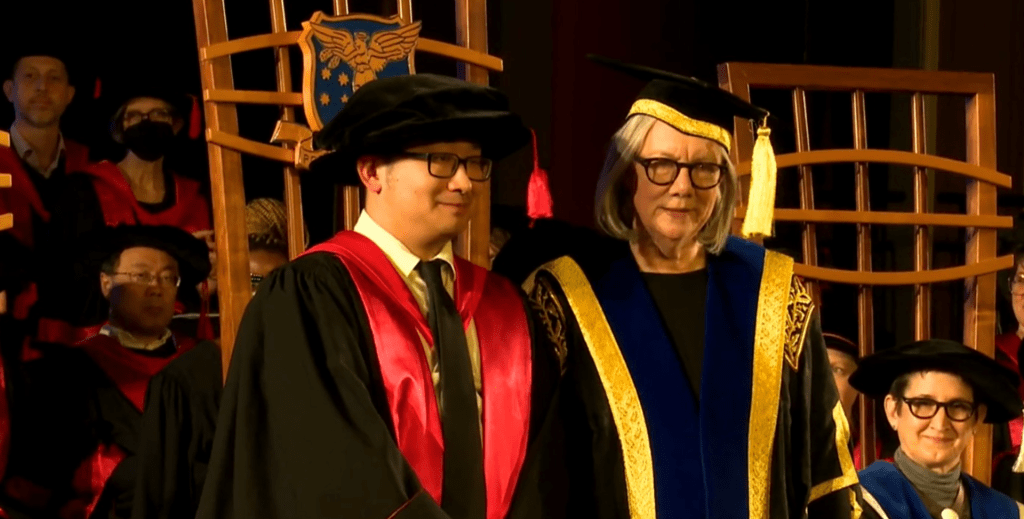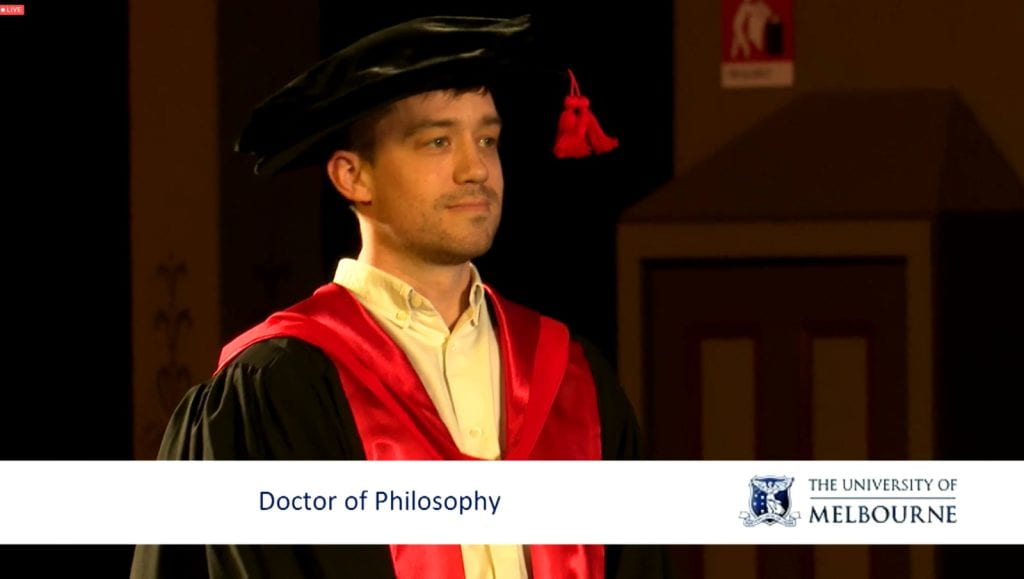
SHAPS Digest (August 2022)
Our new Hellenic Senior Lecturer in Global Diaspora Studies, Andonis Piperoglou (History), delivered a talk as part of the Greek Community of Melbourne’s Greek History & Culture Seminar series, on the topic ‘ “My kids are still called dagoes”: Historical Responses to an Irksome Racial Slur’.
Racial slurs permeate our public vernacular. Throughout the United States and Australia people from the Mediterranean region were often labelled as ‘dagoes’ and/or ‘wogs’. These terms were derogatory and prejudicial racial slurs that situated Mediterranean migrants as precarious citizens within each nation. Despite the ubiquity of these racial slurs scant historical attention has been paid to them, while contemporary discussions on racial slurs often lack historical context and depth. This presentation, which is part of a broader project on the history of racial slurs, examines how racist name-calling has played a role in shaping the way migrants have understood cultural difference, while also influencing how they have understood each other. The presentation uncovers how the meaning of racial slurs have changed over time, while informing the vernacular of race-talk today. A video-recording of this event can be accessed below.
Anuk Kariyawasam, who completed Frederik Vervaet‘s undergraduate subjects in Roman republican and imperial history earlier this year, published an article inspired by studying Roman history, ‘A Fallen Empire: Lessons from Rome for the Modern Citizen’, in CAINZ, the online journal of CAINZ student society.
Andrew May (History) commented for the Age on the recent archaeological finding on Bennetts Lane, which has revealed one of the best preserved ‘buried blocks’ in Melbourne.
In addition to her day job, Sarah Walsh (Hansen Lecturer in Global History) also podcasts (with her sister Amy) about sci-fi movies. In the latest episode, they discuss Men in Black (1997).
Academic Publications
Mike Arnold (HPS), with Robbie Fordyce, Bjørn Nansen, Tamara Kohn, & Martin Gibbs, ‘Automating Digital Afterlives’, in André Jansson and Paul C. Adams (eds.), Disentangling: The Geographies of Digital Disconnection (Oxford University Press)
 The question of how the dead ‘live on’ by maintaining a presence and connecting to the living within social networks has garnered the attention of users, entrepreneurs, platforms, and researchers alike. In this chapter we investigate the increasingly ambiguous terrain of posthumous connection and disconnection by focusing on a diverse set of practices implemented by users and offered by commercial services to plan for and manage social media communication, connection, and presence after life.
The question of how the dead ‘live on’ by maintaining a presence and connecting to the living within social networks has garnered the attention of users, entrepreneurs, platforms, and researchers alike. In this chapter we investigate the increasingly ambiguous terrain of posthumous connection and disconnection by focusing on a diverse set of practices implemented by users and offered by commercial services to plan for and manage social media communication, connection, and presence after life.
Drawing on theories of self-presentation (Goffman) and technological forms of life (Lash), we argue that moderated and automated performances of posthumous digital presence cannot be understood as a continuation of personal identity or self-presentation. Rather, as forms of mediated human (after)life, posthumous social media presence materialises ambiguities of connection/disconnection and self/identity.
Kristian Camilleri (HPS), ‘H. Dieter Zeh and the History of the Foundations of Quantum Mechanics‘, Fundamental Theories of Physics
H.D. Zeh’s early work on the foundations of quantum mechanics and his struggle for recognition provides an instructive case study in the history of the re-emergence of the foundations of quantum mechanics in the latter decades of the twentieth century. This chapter examined Zeh’s early work on decoherence and the obstacles he faced in Heidelberg in winning support for his controversial ideas. Zeh’s commitment to the Everett interpretation undoubtedly served as a major obstacle to the wider recognition of his early theoretical contributions to the understanding of decoherence. It was only through the divorcing of interpretation from the study of the dynamics of environment-induced decoherence in the 1980s that Zeh’s work began to attract renewed attention from a number of physicists. This occurred largely through the work of Wojciech Zurek in the 1980s and 90s. However, Zeh’s struggles were not simply the result of his unorthodox views on interpretation. Unlike Zurek, Zeh did not enjoy the luxury of the backing and support of senior colleagues who were sympathetic to his theoretical interests. Whereas Zurek befitted immensely from his association with John Wheeler, whose reputation gave him the freedom to pursue foundational questions, Zeh found himself increasingly marginalised in Heidelberg with little prospect of professional advancement. The story of Zeh’s early struggles thus constitute an important chapter in the history of the foundations of quantum mechanics.
Tamara Lewit (Honorary, Classics & Archaeology), ‘Children in the Roman Farming Economy: Evidence, Problems and Possibilities’, in D. Van Limbergen et al. (ed.), Reframing the Roman Economy: New Perspectives on Habitual Economic Practices (Palgrave Macmillan)
Children’s roles within Roman farming have been little explored, despite a flood of recent work on many aspects of childhood in Roman society. Children were an important economic cohort, however, and would have made up a large group within the potential labour force of any farm. Close examination of textual and visual sources suggests that children played specific economic roles. Further, ethnographic studies on children’s farm work in the Mediterranean and beyond in more recent times reveal considerable correspondence with ancient practices. The allocation of certain categories of tasks to children appears highly consistent across time and geographic location. By combining these groups of evidence, we can consider the extent to which children’s labour would have contributed to the Roman farming economy. Children’s work should not be seen as insignificant or marginal: rather, it played an essential part, as in later times, within the economics of farm work.
Kate McGregor (History), ‘Human Rights and Regions of Memory: The Case of the International People’s Tribunal on Crimes against Humanity in Indonesia 1965’, in Simon Lewis et al. (eds.), Regions of Memory: Transnational Formations (Palgrave Macmillan)
In late 2015, Indonesian human rights activists staged an International People’s Tribunal to hear the case of crimes against humanity, including mass murder and imprisonment without trial, committed fifty years prior in the 1965 Indonesian genocide against the political left. The tribunal was a mock tribunal and not legally binding. Its main purpose was to increase pressure on the Indonesian government to address this case after eighteen years of failed initiatives. Activists chose the Hague in the Netherlands as the location for the tribunal because holding the tribunal in Indonesia would have been too dangerous due to ongoing threats and intimidation against activists who have taken up this case, especially those who have emphasised any form of judicial solution. Furthermore, they felt that the Hague as a city was an appropriate “symbol of justice and international peace” as host to both the International Criminal Court and the Peace Palace.
Using the case of the 2015 International People’s Tribunal for 1965, this chapter discusses how Indonesia’s historical connections with particular countries played out during the tribunal and the multiple regions of memory at play here. The chapter demonstrates the drive from activists for internationalising this case and making it one of supra-national concern and relevance alongside the ongoing efforts to keep this case within the domestic realm. In doing so, the author considers the instrumentalisation of regions of memory by transnational human rights activists and their detractors.
Kate McGregor also co-authored with Ana Dragojlovic, ‘”They Call Me Babu“: The Politics of Visibility and Gendered Memories of Dutch Colonialism in Indonesia,” special issue on ‘Mobilising Affect, Trauma, Memory: The Politics of Gendered Memory and Gendered Silence’, Women’s History Review
The 2019 documentary film They Call Me Babu utilises historical film footage including the home movies of one Dutch family with a voiceover in Bahasa Indonesia to narrate the fictionalised experiences of a former female domestic worker in the colonial Netherlands East Indies in the closing decades of Dutch colonial rule from 1939 to 1949. By centring the experiences of ‘babu’, women who worked as nannies and nursemaids for families holding European status, the Dutch-Indonesian director Sarah Beerends endeavours to make these women visible and to narrate their viewpoints. In this paper we argue, however, that the director’s aspiration to centre the women’s stories is haunted by the spectres of the colonial matrix of power. This leads to the unintended replication of nostalgic images of, and tropes about, the colony that has characterised earlier Dutch memory work. The film does not offer a critical engagement with colonial violence and the colonial structures of power are instead positioned as contributing to the nanny’s gendered emancipation. Furthermore, we reflect on why, in the context of recent vociferous debates about colonial violence, a film which serves to soften images of Dutch colonialism, was generally well received.
Larissa Tittl (Teaching Associate, Classics & Archaeology), ‘Panic in the Oikos: Female Bodies, [Re]productive Anxiety and Wasted Landscapes in Greek Myth and Dystopian SF. Thinking about nature through gender in Hesiod, the Homeric Hymn to Demeter, Blade Runner and The Handmaid’s Tale’, in K.R. Moore (ed.), Routledge Companion to the Reception of Ancient Greek and Roman Gender and Sexuality
 Ancient Greece and the future worlds of speculative fiction (SF) are place-times that we can examine through cultural practices (ancient Greek epic poetry, material objects, myth-making; dystopian SF literature, film/TV) from the ancient past and about the near or distant future. But how might the visions of SF connect with those from ancient Greece? This chapter explores narratives about nature-based crises in Greek myth and dystopian SF, and in particular how these crises are linked, through a gendered conceptualisation of nature, landscape and place, to female bodies and women’s reproductive capacity, to female sexuality, deceitfulness and otherness.
Ancient Greece and the future worlds of speculative fiction (SF) are place-times that we can examine through cultural practices (ancient Greek epic poetry, material objects, myth-making; dystopian SF literature, film/TV) from the ancient past and about the near or distant future. But how might the visions of SF connect with those from ancient Greece? This chapter explores narratives about nature-based crises in Greek myth and dystopian SF, and in particular how these crises are linked, through a gendered conceptualisation of nature, landscape and place, to female bodies and women’s reproductive capacity, to female sexuality, deceitfulness and otherness.
Particular focus is given to the themes that emerge from narratives about Gaia, Pandora and Demeter in Hesiod and the Homeric hymns, and how these same themes are reinscribed in the Hulu streaming series of Margaret Atwood’s 1985 novel The Handmaid’s Tale and the Blade Runner cycle (the Final Cut and Blade Runner 2049).
Awards & Promotions
Ángel Alcalde Fernandez (History) has been promoted to Senior Lecturer.

Georgina Arnott (History) has been appointed Assistant Editor of Australian Book Review.
Martin Bush (HPS/repliCATS) has been promoted to Senior Researcher.

Ted Clayton (BA (Hons) majoring in History, 2021) has won the 2022 Australian Industrial Relations Commission Centennial Prize, awarded for the best research work (essay or thesis) submitted in the field of Labour History and Industrial Relations. Ted won the prize for his History Honours thesis examining the ALP/ACTU Prices and Incomes Accord through a comparative biography of Norm Gallagher (BLF) and Laurie Carmichael (AMWU). Ted writes,
Winning the AIRC Centennial Prize was a great honour and one that validated the countless hours of work I put into my labour history thesis last year. By examining the ALP/ACTU Prices and Incomes Accord (1983-1996) from the perspective of two key trade unionists, Laurie Carmichael (AMWU) and Norm Gallagher (BLF), my thesis allowed me to reach informed conclusions about an extremely controversial era of Australian labour history – conclusions which have shaped the way I understand industrial relations in this Australia today.
Ted would like to again thank his two wonderful supervisors, Sean Scalmer and Mark Edele, as well as the late Stuart Macintyre, for their guidance and wisdom in 2021. Ted now works as a field organiser for the Community and Public Sector Union (CPSU [PSU]).

Ethan Taylor (BA (Hons) majoring in Philosophy, 2021) has been awarded a Charles Perkins Scholarship. The scholarship will enable Ethan to study a Master of Philosophy in Politics (Political Theory) at the University of Oxford. More details can be found on the Trinity College website and in the video below.
PhD completions
Nathan Gardner (PhD in History), ‘Imagining the “Chinese Australian Community”: A History of Community Organisations, 1970–2020’
This study examines the concept of a unitary ‘Chinese Australian community’ through a comparative analysis of Chinese Australian community organisations and their responses to six major events or moments in recent history (1970–2020). These events and moments are: the end of the White Australia Policy and the beginning of multicultural Australia; the 1984 ‘Blainey debate’, the Tiananmen Massacre and Chinese Students’ campaign for permanent residency in Australia; the ‘Hanson debate’ and the rise of ‘Hansonism’, 1996–1998; the beginning of the so-called ‘Chinese century’; and the recent, on-going debate about the PRC’s influence in Australian politics and society. Over the course of this history, the study puts a special focus on community organisations’ assertions of belonging, (trans)national identity, and multicultural ideals.
This study draws on the English- and Chinese-language materials created by more than 15 community organisations over this 1970–2020 period from around Australia. These materials were found in public and private collections across the country in physical and digital formats.
 Usage of these materials is complemented by ten oral history interviews conducted by the researcher with past and present community leaders in Melbourne, Sydney, and Brisbane. These interviews were conducted in English and on the condition of anonymity.
Usage of these materials is complemented by ten oral history interviews conducted by the researcher with past and present community leaders in Melbourne, Sydney, and Brisbane. These interviews were conducted in English and on the condition of anonymity.
This thesis suggests that a unitary, unified, or united Chinese Australian community is a recurring chimera in the sociocultural space shared by Chinese Australians. Instead, community organisations adopted different positions on a spectrum of possible relationships to both their Australian and ancestral homes and political developments in either or both could compel unity or division among them.
The intended result is a history that shows Chinese Australian community organisations practising a highly participatory style of multiculturalism over the decades, albeit with alterations to fit the ever dynamic and manifold imaginings of what constituted a ‘Chinese Australian community’.
Supervisors: Professor Antonia Finnane, Professor Sean Scalmer
Dang Nguyen (Nguyễn Hồng Hải Đăng in her native Vietnamese) (PhD, HPS), ‘Tracing Non-Biomedical Therapeutic Knowledge: Social-Network Lives in Action’

This thesis investigates the performance of non-biomedical therapeutic knowledge as situated knowledge on the internet. Non-biomedical therapeutic knowledge is defined as medical knowledge that exists in separation, but not isolation from, scientific biomedical knowledge. By tracing the social-network lives of non-biomedical therapeutic knowledge, the thesis examines the influences of digital technologies on the propagation of knowledge that exists in the margin of scientific knowledge, as well as the implications of this digitally-enabled propagation on non-biomedical cultural formations as living practices. Assemblages of mediated knowledge emerge as a result of encounters between digital technologies, non-biomedical knowledge, and the people who practice and receive non- biomedical therapies.
From static texts to live-streaming videos, social-network enactments replicate existing social dynamics in the propagation of marginalised knowledges, provide channels for social support through casual and ephemeral interactions, transform human experiences with downtime in tending to the sick body, and, through facilitating in vivo conceptions of space, enable the persistence of these marginalised medical practices. In studying the resultant melange of digital artefacts left behind by their actors and the emergent social-network properties arising from their relations, this thesis uses a mix of quantitative computational and qualitative digital methods. Although each digital expression lends itself to particular analytical and methodological approaches, whose engagements produce conclusions of different epistemological standpoints, these conclusions nevertheless complement each other in the overall inquiry of assembling the social-network lives of non-biomedical knowledge. In choosing Vietnam as the local case, I offer a thorough examination of non- biomedical knowledge on the internet in context as a point of contrast, reference, or comparison for other sites and situations. Binding the empirical findings presented in this thesis together are themes of social-network accomplishments as contingency, the politics of in/visibility in social-network labour as patchwork, and the social-network emergence of multiple space-time.
Supervisors: Professor Mike Arnold, Professor Richard Chenhall (Melbourne School of Population & Global Health)
PhD milestones
PhD completion seminars
Cancy Chu, ‘Preserving Plastics in Book Collections: Storage and Care of Post-1950s Bookbinding Materials and Structures’
With the popularisation of plastics in the twentieth century, came the introduction of plastic-containing bookbinding materials and styles. Archives, libraries, and other book collections now include plastics of varying structures, polymer types, and stability. As existing book conservation guidelines do not yet reflect the introduction of plastics, this thesis aims to establish long-term storage strategies using interdisciplinary methods. Following an industry survey highlighting the needs of Australian archives, storage recommendations are developed using professional experience, collection surveys, and experimental testing. Results equip collection care professionals in caring for a ubiquitous material.
Alastair James, ‘Labour Market Justice: Old and New Problems’
This thesis sets out to analyse normatively significant and in some cases under-theorised labour market phenomena to identify forms of unfairness and provide appropriate policy-based responses. Some chapters engage with longer-standing questions, such as exploitation theory, and workplace hierarchy. These chapters are concerned with enhancing our understanding of these concepts as they apply to contemporary labour markets. Other chapters explore labour market trends that have been less studied so far in philosophy, such as the gig economy, and the relationship between working remotely and discretionary time entitlements. These chapters provide insight into specific forms of unfairness and offer suitable policy mechanisms in response.
Projects
Mark Edele (Hansen Chair in History) is launching a new Cambridge University Press book series, ‘Elements in Soviet and Post-Soviet History’.
Aleksandra Riabichenko (PhD student, History) has been awarded a Faculty of Arts Digital Studio graduate internship. She will be working with Julie Fedor (History) to develop a database mapping the participation of Russian combatants in the post-2014 war in the Donbas.
Graduations







SHAPS staff, fellows, students, alumni: if you have news items for the monthly SHAPS digest, please email us the details.